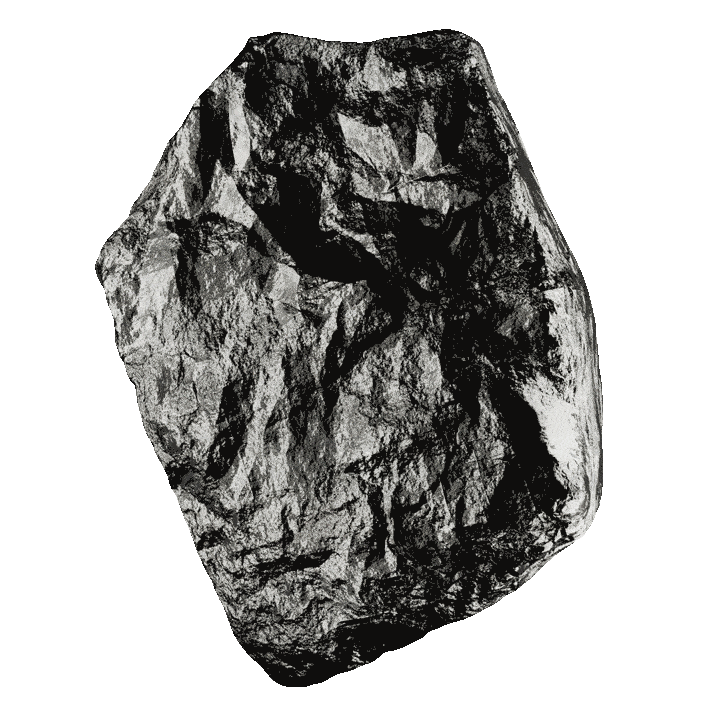Today, with the advancement of technology, humans are trying to utilize all available elements to facilitate their lives. One of the widely used and important materials in many industries is carbon materials. Carbon is a chemical element with atomic number 6 and chemical symbol C, classified in the non-metal category of elements. In this article, we aim to emphasize the importance of carbon by introducing its properties. So, stay with us until the end of this article.
What are Carbon Materials?
Carbon is a chemical element represented by the symbol C, with a capacity of 4 and a mass number of 12. Carbon is one of the most abundant chemical elements on Earth, leading to the production of various organic compounds. This element exists in all known forms of life on Earth, earning it the fifteenth rank among other elements.
This valuable element has enabled the production of various materials, and life would be impossible without it. Nowadays, carbon materials are used in a wide range of industries, thanks to their ability to absorb and mix with other elements. Carbon plays a crucial role in the production of raw materials.
Types of Carbon Materials
It is worth noting that all electrodes are made of carbon materials, and they are used in many industrial and chemical centers for the production of various products. Due to its high electrical conductivity, strong wave-conducting ability, strength, and low density, carbon has contributed to the production of durable and high-quality products, making it recognized as a driving force behind scientific and technological advancements. In the following, we will introduce and explain each of the products produced from carbon material separately.
The materials produced from carbon in industrial and chemical centers include:
- Carbon electrodes
- Various types of refractory and heat-resistant materials
- Various types of chemical-resistant materials
- Electric coal
- Various types of anti-friction materials
- Graphite blocks and components
- Carbon pastes
- Various types of carbon fiber plastics
- Carbon nanomaterials
Carbon Electrodes
One of the types of carbon materials is electrodes, which are generally used for the transmission of electrical waves. In fact, without these electrodes, the required electric current for high-pressure devices would not be supplied. Examples of powerful energy devices include electric excavators, various types of electric furnaces, and arc welders. Carbon electrodes are widely used in the parent industries such as aluminum, chemical, and steel industries.
Various Types of Refractory and Heat-Resistant Materials
Furnaces are essential and crucial tools in the production of various products, requiring high resistance to intense heat, as they generate temperatures exceeding 2000 degrees. Another application of carbon is in the lining of furnace ends. Carbon is used in various types of furnaces, including electric furnaces, due to its low volume characteristics, to prevent cracking or heat leakage over the long term.
Various Types of Materials Resistant to Chemical Compounds
Graphite is one of the products made from carbon materials and has high resistance to chemical compounds. Graphite is widely used due to its corrosion resistance, high heat transfer, and low thermal expansion. Many industries use various types of densifiers to strengthen carbon graphite in the production of hydrochloric acid, sodium hypochlorite, and acetic acid to enhance the properties of graphite.
Electric Carbon and Carbon Materials
Another type of carbon product is electric carbon or electric coal. Electric carbon, due to its small size, has a wide range of applications in industries. It is used in various applications such as electrical brushes, graphite furnaces, and iron powder production.
Carbon Pastes
Carbon pastes are another type of carbon that can be used as cathodes in the production of monolithic solar cells and the production of electrodes required for conductivity in solar cells.
Carbon Nanomaterials
Carbon nanomaterials include two categories: carbon nanotubes and graphene nanotubes, which have unique properties in mechanical, electrical, thermal, and optical fields.
Applications of Carbon Materials
As mentioned, carbon plays an important role in production and is used in various industries. Another use of carbon materials is in the petrochemical industry, where they are used to produce gasoline, diesel, and kerosene. In addition to these uses, carbon is also impactful in the economy, and producers help improve human daily life by creating hydrocarbon forms. Some examples of hydrocarbon forms include fossil fuel, methane gas, and crude oil.
Furthermore, due to its high convertibility into other substances, carbon is used to produce various types of plastics. Convertibility is a very useful feature in carbon materials, and it allows carbon to be used as a conductive material as well as a non-conductive material.
Other Uses of Carbon Materials
Some other applications of carbon materials include the following:
- Use in the jewelry industry for decorating diamonds.
- Steel industry for steel production.
- Use in the production of various black colors for ink, oil paint, carbon paper, car body paint, Indian ink, and laser printer ink.
- Use as polymer additives for various rubber and plastic compounds.
- Used for the production of activated carbon in filter products. Examples of filter products include gas masks, water filters, and kitchen hoods, absorbing toxins in medicine, and absorbing gases in the digestive system.
In Conclusion
Based on the mentioned points, for more information and to receive services, you can visit kaladasht.com and fill out the contact form.
FAQs
Various devices for solar cell production, ink, production of various plastics, etc.
Petrochemical and steel industries.
The cost of carbon products is high and they are produced in factories using essential raw materials.
Yes, carbon is also used for decorating and cutting various gemstones.


